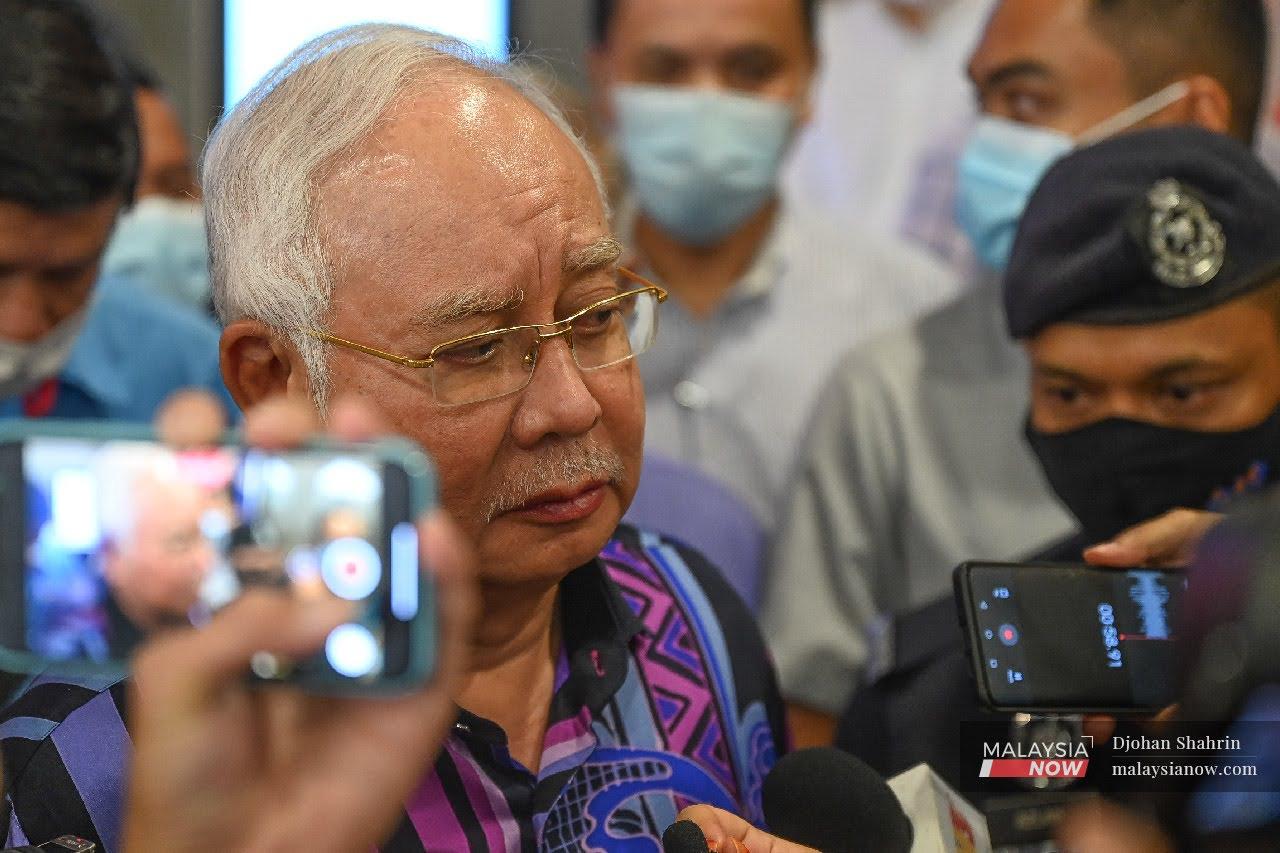Najib stares at last mile in politics as virus emergency begins
If the Court of Appeal and Federal Court maintain Najib's conviction in the SRC International case, the former prime minister might have to take a break from politics until 2033.
Just In
The end of the emergency period might also mark the end of former prime minister Najib Razak’s political journey, as the next six months could see legal processes exhausted for his appeal in the case involving RM42 million worth of funds linked to SRC International Sdn Bhd.
In July last year, the High Court found Najib guilty of seven charges of criminal breach of trust, money laundering and power abuse in the misappropriation of RM42 million from SRC International.
His appeal, in which his lawyers have filed more than 300 grounds to set aside the conviction, will be heard on Feb 15.
A senior lawyer however said that the case, among the 42 corruption charges facing the former leader, would be enough to put him out of politics.
Haniff Khatri Abdulla said if the Court of Appeal and the Federal Court maintain the conviction, Najib’s political career might have to break until 2033, when the 17th general election is due.
This would be subject to the former Umno president not being granted a royal pardon and a lift of the political ban for convicts, he added.
“But in the absence of a royal pardon, Najib’s political career is sealed,” he told MalaysiaNow.
Najib, current Umno president Ahmad Zahid Hamidi and party secretary-general Ahmad Maslan are among a group of former government leaders from the Barisan Nasional era who have been slapped with multiple charges of corruption and abuse of power.
“In the absence of a royal pardon, Najib’s political career is sealed.”
A Covid-19 emergency declared yesterday, which will see the suspension of Parliament and elections until Aug 1, will have no bearings on their trials.
In a speech yesterday, Prime Minister Muhyiddin Yassin gave an undertaking that his emergency administration would not meddle with the judiciary despite the power to enact tough laws in efforts to battle the pandemic, which has so far killed more than 500 people, with thousands of patients pushing public health service to the breaking point.
One analyst sees the prime minister’s no-interference assurance as a warning to the so-called “court cluster”, a pandemic-laced phrase used on MPs facing criminal charges.
Shamsul Amri Baharuddin of Universiti Kebangsaan Malaysia said it was a strong signal to Najib that Muhyiddin was not prepared to negoatiate a way out for his former boss.
“There’s no hope for any deal at all, because Muhyiddin has made clear the hurdle ahead, and it is evident that the prime minister does not want to be involved in Najib’s cases,” Shamsul told MalaysiaNow.
He said the same applies to others facing multiple charges.
“It is a warning to all those in the court cluster, not only Najib,” he added.
The appeals process for the SRC International case will continue for 14 days without witnesses being called.
Haniff said the trial judge could come out with a verdict by the end of February.
In the event that the Court of Appeal upholds the verdict, Najib could bring the appeal to the Federal Court, following which the process could take less than four months before a final ruling is made at the apex court.
“So the whole case could be concluded by Aug 1 at the Federal Court,” Haniff said.
“It is a warning to all those in the court cluster, not only Najib.”
Haniff said it would mean that Najib, who is currently disqualified from contesting elections, must also vacate his Pekan seat where he has been MP for more than four decades.
Under the law, anyone who is convicted and sentenced to more than a year in prison or fined more than RM2,000 will be disqualified from running for office for five years after their release.
But a royal pardon coupled with the Agong exercising his powers under Article 48(3) of the Federal Constitution could allow Najib to contest the 17th general election.
That clause allows the king to remove the disqualification of a person from active politics.
In any case, Haniff said once Najib loses his appeal at the Federal Court, he will have to serve the jail sentence.
“If the Agong does not give him a pardon, he cannot contest in the 15th, 16th and 17th general elections, as the five-year ban will still be in force,” he added.
Subscribe to our newsletter
To be updated with all the latest news and analyses daily.
